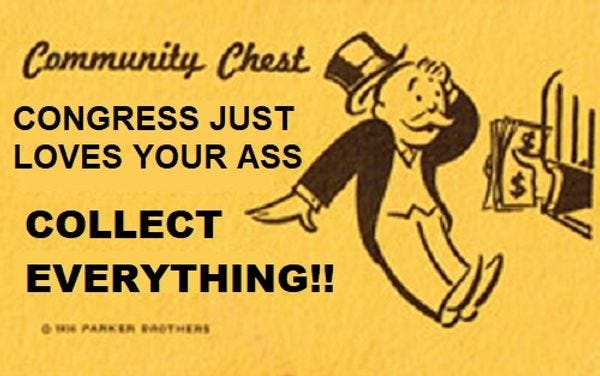Congress Frees Big Banks From Regulations That Kept Them Only Obscenely Profitable
Should be in every edition.
Terrific news for the oppressed small-to-great-big banks of America! Yesterday, the House passed its version of the banking bill, which will finally remove some of the regulations put in place on the banking industry after it crashed the economy in 2008. The bill, which undoes a lot of the Dodd-Frank regulatory structures designed to prevent banks from making risky gambles with publicly insured assets and to reduce the likelihood of another cascading financial failure like the 2008 crisis, will surely free the banking industry from the regulatory burdens that kept them from profitability for so long! How badly needed was this bill? Well, as CNN reported yesterday, American banks just had their most profitable quarter in history:
Bank profits soared by 28% during the first three months of 2018 to $56 billion, according to statistics published by the FDIC on Tuesday.
The blockbuster earnings report, boosted by President Donald Trump's tax cuts and the healthy economy, easily tops the prior record set just three quarters earlier.
Just think, if it weren't for regulations keeping the brakes on, banks could have REALLY made some money. As CNN notes,
The Dodd-Frank reform law was signed into law in July 2010 by former President Obama. Since then, bank profits have increased by 135% as the American economy climbed out of the Great Recession.
Talk about job-killing regulations, huh?
As we discussed when the Senate took its whack at rolling back Dodd-Frank, the new, slimmer regulations have been pitched to the public as necessary to save community banks, which were allegedly closing all over the place from the burden of complying with Dodd-Frank and its requirement that any bank with assets of $50 billion or more receive close scrutiny from the Federal Reserve, and undergo regular "stress tests" to ensure they can handle some big losses without causing a domino effect in the rest of the financial system.
As Vox notes, however,
community banks aren’t exactly suffering financially: According to the FDIC, community banks reported increases in net income from the year before in every quarter of 2017.
The threshold for close scrutiny by the Fed has now been raised to $250 billion, which means a whole lot of large regional banks will also be free of having to show they can handle significant losses. That's not a trifling matter -- while the very biggest banks will still have to prove they can fail without dragging the economy down with them, former congressman Barney Frank, the lead sponsor of the post-recession fixes, warns that while the failure of a single biggish bank might not cause a recession,
the failure of two or three such institutions would put us in “Lehman Brothers territory,” referring to the investment bank that filed for bankruptcy in September 2008, precipitating the financial crisis. Countrywide Financial, one of the country’s largest subprime mortgage lenders that was at the center of the 2008 mortgage crisis, had assets in the $210 billion range before it failed.
Frank has previously said he thought the $50 billion floor for closer scrutiny was too low, and had caused problems for smaller banks, but that he thought a more reasonable fix would be to require close regulation of institutions once they reach $125 billion in assets.
Oh, golly, and just as Congress let car dealers off the hook from a regulation preventing discrimination in auto loans, this bill will roll back anti-discrimination rules in lending by banks. Heck, if you can't screw minorities, why even run a bank?
The new law will also allow foreign megabanks to avoid regulatory scrutiny by setting up US holding companies that can pretend they're good old flag-waving US businesses.
There's lots more, including a provision to let smaller institutions play fast and loose with home mortgages, because how could those ever cause trouble, huh? But the really important thing to remember here is that Congress has proven that it can get something done on a bipartisan basis: Slobbering all over the financial sector that keeps members flush with campaign donations. Truly, we are about to be Great Again, and if the whole thing results in another financial crisis, we can always blame poor people for owning refrigerators and getting talked into bad loans that leave them homeless.
Follow Doktor Zoom on Twitter



